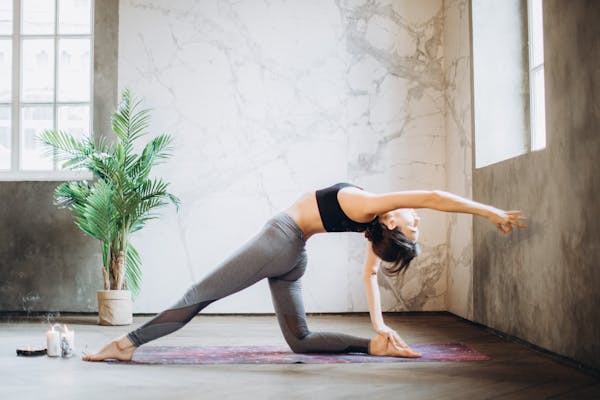How Yoga and Meditation Can Help You Overcome Depression?
Transforming Your Energy Rise Above the Darkness
Depression is a pervasive and debilitating mental health condition that affects millions of people worldwide. While conventional treatments like medication and therapy can be effective, many people are turning to alternative approaches like yoga and meditation to help manage their symptoms. But can these practices really help transform your energy and overcome depression?
The Science Behind Yoga and Meditation's Impact on Depression
Research has shown that yoga and meditation can have a profound impact on both physical and mental health. These practices have been shown to:
1 Reduce symptoms of anxiety and depression
2 Improve mood and overall sense of well-being
3 Enhance cognitive function and concentration
4 Boost self-esteem and body image
5 Improve sleep quality
How Yoga and Meditation Can Help Transform Your Energy
Yoga and meditation work on multiple levels to help transform your energy and overcome depression. Here are some key ways in which these practices can help:
1 Reduce stress and anxiety: Yoga and meditation have been shown to reduce stress hormones like cortisol, leading to a decrease in anxiety and depression symptoms.
2 Increase positive energy: Yoga and meditation can help increase feelings of positivity and well-being, which can help counteract the negative energy of depression.
3 Improve mood regulation: Yoga and meditation can help improve mood regulation by increasing the production of neurotransmitters like serotonin and dopamine.
4 Enhance self-awareness: Yoga and meditation can help increase self-awareness, allowing you to better understand your thoughts, emotions, and behaviors.
Simple Yoga and Meditation Techniques to Get You Started
Here are some simple yoga and meditation techniques you can try to help transform your energy and overcome depression:
A Deep breathing exercises: Take slow, deep breaths in through your nose and out through your mouth, focusing on the sensation of the breath.
B Body scan meditation: Lie down or sit comfortably, bringing your attention to different parts of your body, starting at your toes and moving up to the top of your head.
C Yoga poses for depression: Try poses like downward-facing dog, child's pose, and warrior II, which can help reduce symptoms of depression.
Depression is a complex and multifaceted condition that requires a comprehensive treatment approach. While yoga and meditation should not be used as a replacement for conventional treatment, they can be a powerful adjunct therapy to help transform your energy and overcome depression. By incorporating these practices into your daily routine, you can take the first step towards healing and recovery.
Q: What is the concept of "particles of depression" and how does it affect our environment?
A: The concept of "particles of depression" refers to the idea that our emotions and
Q: How can yoga and meditation help in transforming our energy and overcoming depression?
A: Yoga and meditation are powerful tools that can help transform our energy and
Q: What are some simple yoga and meditation techniques that can help with depression?
A: Some simple yoga and meditation techniques that can help with depression
Q: Can yoga and meditation replace conventional treatment for depression?
A: No, yoga and meditation should not be used as a replacement for conventional treatment
Q: How can I incorporate yoga and meditation into my daily routine?
A: Incorporating yoga and meditation into your daily routine can be simple.
Q: What are some common misconceptions about yoga and meditation?
A: Some common misconceptions about yoga and meditation include the idea
Q: How can I find a qualified yoga or meditation instructor?
A: Finding a qualified yoga or meditation instructor can be easy.
1. "Yoga and Meditation for Depression" (Harvard Health Publishing, 2019)
2. "The Effects of Yoga on Mental Health" (Journal of Clinical Psychology, 2018)


















No comments:
Post a Comment